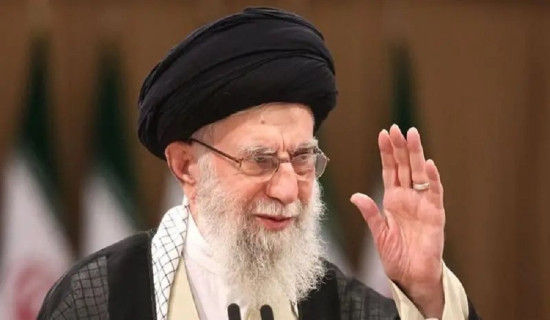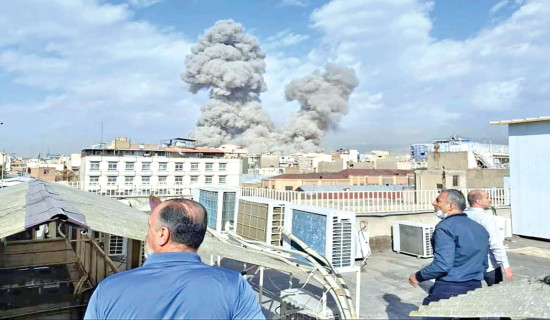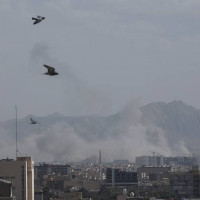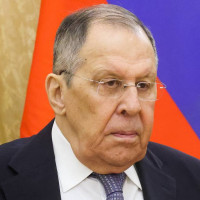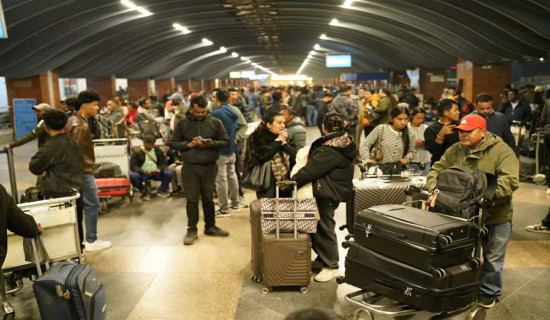- Sunday, 1 March 2026
Nations big and small get chance to bear witness to climate change at Baku talks
Baku, Azerbaijan, Nov. 14: More than two dozen world leaders are delivering remarks at the United Nations' annual climate conference Wednesday, with many hart-hit nations detailing their nations' firsthand experience with the catastrophic weather that has come with climate change.
Leader after leader recounted climate disasters, with each one seeming to top the other. Grenada's prime minister Dickon Mitchell detailed a 15-month drought at the beginning of the year giving way to a Category 5 Hurricane Beryl.
“At this very moment, as I stand here yet again, my island has been devastated by flash flooding, landslides and the deluge of excessive rainfall, all in the space of a matter of a couple hours,” Mitchell said. “It may be small island developing states today. It will be Spain tomorrow. It will be Florida the day after. It’s one planet.”
Grenada's premier wasn't the only small island nation leader who came with fighting words. Prime minister Philip Edward Davis warned that “it will be our children and grandchildren who bear the burden, their dreams reduced to memories of what could have been.”
“We do not — cannot — accept that our survival is merely an option,” Davis said.
Davis said too often progress in the fight against climate change gets hurt when governments change, as is happening in the United States and Germany.
“If we leave climate action to the whims of political cycles, our planet’s future becomes precarious, very precarious,” Davis said. “The climate crisis does not pause for elections or to accommodate the way of changing political ideas or ties. It demands continuity, commitment and most of all, solidarity.”
Leaders on a panel with members of the High Ambition Coalition, a group of nations that want to see strong climate action, highlighted the “inverted morality” of big emitters who aren’t taking responsibility for their impacts on countries who have the most to lose.
Gaston Browne, the prime minister of Antigua and Barbuda, said high-polluting nations are “deliberately burning the planet."
Past promises of financial aid went unfulfilled for too long, so small island nations will have to seek justice and compensation in international courts, he said.
Marshall Islands president Hilda Heine called the climate crisis “the most pressing security threat” her country faces, but said she thinks the Paris Agreement process — where countries agreed to limit warming to 1.5 degrees (2.7 degrees Fahrenheit) since pre-industrial times — is resilient. (AP)



